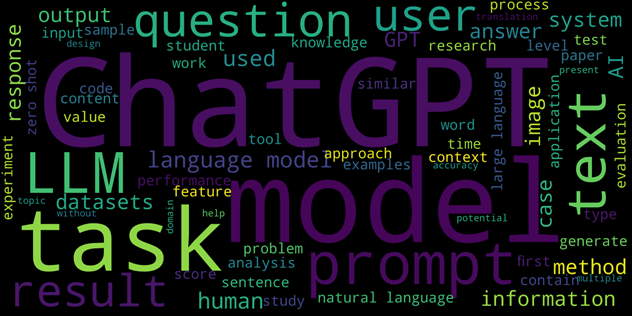A Comprehensive Survey of ChatGPT and Its Applications Across Domains
Published 12 October, 2023
Recent advancements in natural language processing (NLP) have ushered in a new era with the emergence of powerful language models, most notably the Generative Pretrained Transformer (GPT) series, which includes substantial language models such as ChatGPT (GPT-3.5 and GPT-4). These models undergo extensive pre-training on vast textual data, and their capability is evident in their exceptional performance across a broad spectrum of NLP tasks, including language translation, text summarization, and question-answering. Notably, ChatGPT has demonstrated its potential across various domains, spanning education, healthcare, reasoning, text generation, human-machine interaction, and scientific research, to name just a few.
In line with this emerging and noteworthy trend, a team of researchers in China has undertaken a thorough analysis of research papers centered around ChatGPT. As of April 1st, 2023, a total of 194 papers referencing ChatGPT were identified on arXiv.
The team’s study encompassed a comprehensive trend analysis of these papers, resulting in the creation of a word cloud to visually depict the frequently used terminology. Additionally, they delved into the distribution of these papers across diverse fields, presenting statistical insights.
Moreover, their efforts extended to a comprehensive review of the existing literature on ChatGPT.
“Our review spans various dimensions, including an exploration of ChatGPT’s manifold applications, a thorough consideration of the ethical implications associated with its use, an evaluation of its capabilities, and an examination of its inherent limitations,” explains lead author Bao Ge.
The team’s findings indicate a rapid increase in interest in NLP models, showcasing their substantial potential across various domains.
"Nonetheless, it is essential to acknowledge the valid concerns surrounding biased or harmful content generation, privacy infringements and the potential for technology misuse,” Ge emphasizes.
Mitigating these concerns and establishing a framework for the responsible and ethical development and deployment of ChatGPT stands as a paramount priority."

Contact author details: Bao Ge. School of Physics and Information Technology, Shaanxi Normal University, Xi'an, 710119, Shaanxi, China. bob_ge@snnu.edu.cn
Funder: This research was funded by the National Natural Science Foundation of China (No. 61976131).
Conflict of interest: The authors declare that they have no known competing financial interests or personal relationships that could have appeared to influence the work reported in this paper.
See the article: Liu Y, Han T, Ma S, et al. Summary of ChatGPT-Related Research and Perspective Towards the Future of Large Language Models, Meta-Radiology, 1 (2023) 100017. https://doi.org/10.1016/j.metrad.2023.100017